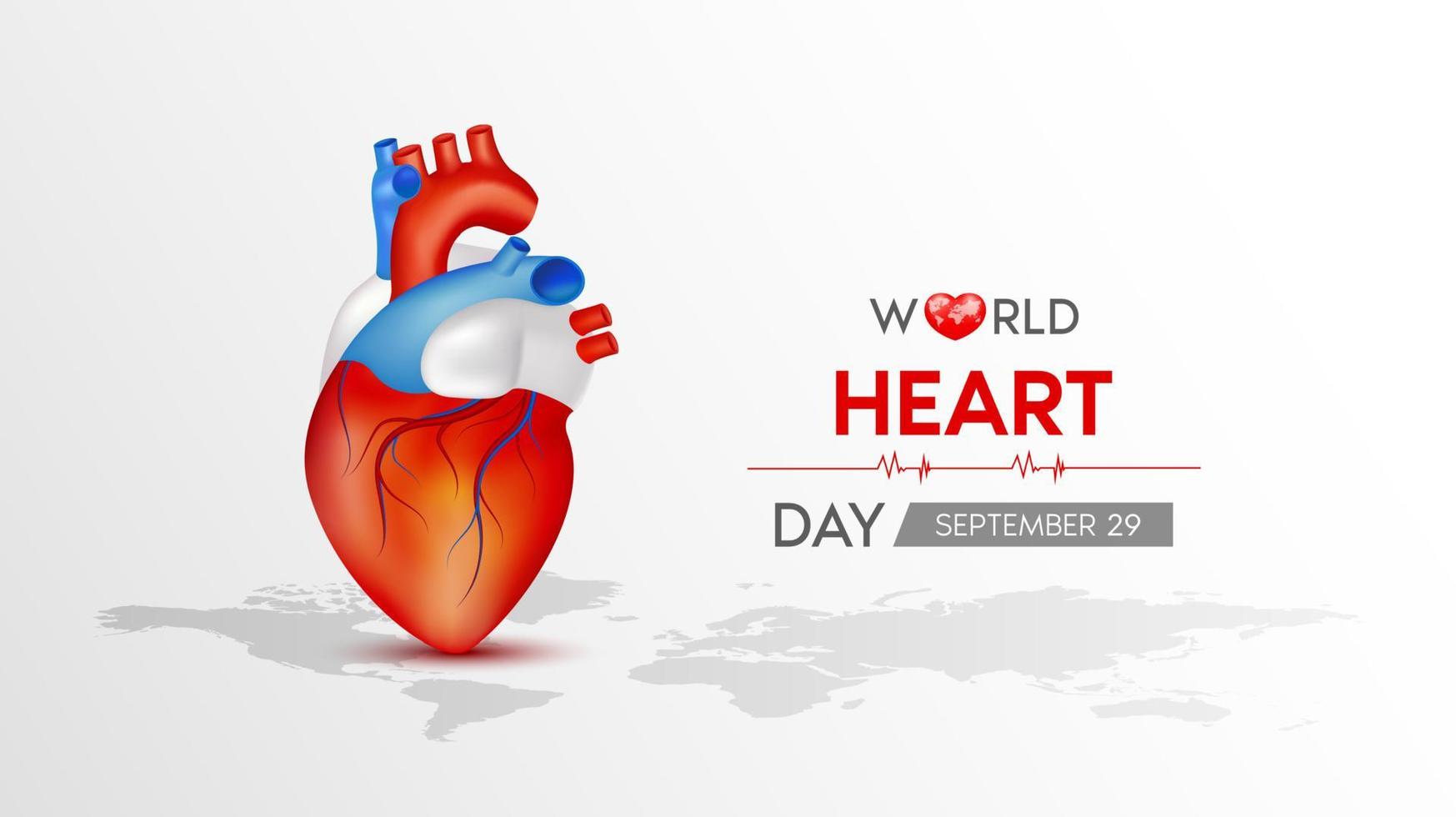Most of us spend more time worrying about trivial things than we do thinking about our hearts. It’s been working non-stop since before you took your first breath, pumping blood, delivering oxygen, keeping everything running. On World Heart Day, observed every September 29th, let’s talk about giving it the attention it actually deserves.F
This year’s theme, “Don’t Miss a Beat,” isn’t just a catchy phrase. It’s a wake-up call that’s especially important for Indians, who’re facing a heart health crisis that’s quietly growing bigger every year.
The Numbers Don’t Lie
Here’s something that’ll make you stop scrolling: cardiovascular diseases are now the leading cause of death in India. We’re not talking about rare conditions or freak accidents. Heart disease has become so common that chances are, you know someone who’s dealing with it right now.
And it’s not just affecting grandparents anymore. Doctors across the country are seeing more people in their 30s and 40s walking into emergency rooms with heart attacks. That’s younger than your parents, maybe even your older siblings.
The scary part? Most of these cases could’ve been prevented. Yeah, you read that right. The majority of heart problems don’t just appear out of nowhere like some villain in a movie. They build up over time because of things we do (or don’t do) every single day.
Why Indians Are More At Risk
If you’re living in India, your heart’s got some extra challenges to deal with. It’s not fair, but it’s the reality. Indians tend to develop heart disease about 10 years earlier than people in Western countries. A 35-year-old Indian has roughly the same heart disease risk as a 45-year-old American.
Cities like Delhi, Mumbai, Kolkata, and Chennai are seeing higher rates of heart problems compared to other parts of the country. The combination of pollution, stress, long commutes, desk jobs, and let’s be honest, our love for fried food and sweets creates a perfect storm for heart trouble.
World Heart Day reminds us that genetics play a role too. South Asians have a higher tendency to develop diabetes and hypertension, both of which are massive risk factors for heart disease. But before you blame your genes and call it a day, remember that lifestyle choices can often override genetic predisposition.
The Small Changes That Make Big Waves

Here’s the good news that doctors want you to hear: you don’t need to become a marathon runner or live on salads to protect your heart. The theme for World Heart Day this year focuses on small lifestyle changes that create big health benefits, and that’s not just empty motivation-speak.
If you’re walking 2,000 steps a day and you bump it up to 5,000, you’ve already done something major for your heart. Adding one vegetable to your dinner plate, taking the stairs instead of the elevator, or swapping one chai with less sugar. These aren’t dramatic changes, but they add up faster than you’d think.
What Your Heart Actually Needs
Let’s get practical. Your heart wants five simple things from you, and none of them require a gym membership or expensive equipment.
First up: movement. Your body wasn’t designed to sit in front of a screen for 10 hours straight. Just 30 minutes of walking, dancing, playing with kids, or even doing household chores can work wonders. Split it into three 10-minute sessions if that’s easier. Your heart doesn’t care how you move, it just wants you to move.
Second: real food. No, you don’t have to give up biriyani or gulab jamun forever. But maybe don’t make them a daily thing? Focus on eating more dals, vegetables, fruits, and whole grains. Cut down on the processed snacks, the namkeen packets, and the endless cups of sugary tea.
Your heart also needs you to chill out, literally. Stress is a silent killer, and World Heart Day emphasizes that mental health and heart health are connected. When you’re constantly stressed, your blood pressure stays high, your heart works overtime, and inflammation increases throughout your body. Find what helps you unwind, whether that’s music, spending time with friends, or just sitting quietly for 10 minutes.
Fourth thing: ditch the cigarettes and go easy on the alcohol. Smoking is one of the worst things you can do to your heart, full stop. And while one drink occasionally isn’t the end of the world, regular heavy drinking damages your heart muscle over time.
Finally: know your numbers. When was your last health checkup? Do you know your blood pressure, blood sugar, and cholesterol levels? Most people have no idea, and that’s dangerous because heart disease often has no symptoms until something serious happens.
The Hypertension Problem India’s Facing
Let’s talk about high blood pressure for a minute because it’s become ridiculously common in India. Millions of Indians are walking around with hypertension and don’t even know it. It’s called the silent killer because you can feel perfectly fine while your blood pressure is quietly damaging your heart, kidneys, and blood vessels.
The tricky part? Some people have what doctors call resistant hypertension, where regular medications don’t seem to work well. But there’s actually new hope on this front. Recent research is exploring better treatment combinations and lifestyle interventions that are showing promise for people who’ve struggled to get their blood pressure under control.
Cities and Hearts Don’t Mix Well
If you’re living in a metro city, your heart’s working extra hard just dealing with the environment. Air pollution doesn’t just affect your lungs. The tiny particles in polluted air can get into your bloodstream and increase your risk of heart attacks and strokes. Add the stress of traffic, long working hours, and limited space for exercise, and you’ve got a recipe for cardiovascular problems.
This doesn’t mean you need to pack up and move to a village (though that sounds nice, doesn’t it?). It means you need to be more intentional about protecting your heart when you’re in a high-risk environment. Wear a mask on highly polluted days, try to exercise indoors when air quality is bad, and make your home a stress-free zone as much as possible.
Don’t Wait for Warning Signs

Here’s what freaks doctors out: most people ignore the early warning signs of heart trouble. They brush off chest discomfort as acidity, blame arm pain on sleeping weird, or ignore breathlessness as just being out of shape.
If you’re feeling chest pain or pressure, pain radiating to your arm, jaw, or back, unusual fatigue, shortness of breath, dizziness, or breaking out in a cold sweat, don’t wait. Don’t google symptoms. Don’t sleep it off. Get to a hospital. Those precious minutes can mean the difference between a treatable problem and a life-threatening emergency.
Women especially need to pay attention because their heart attack symptoms can be different from men’s. They might feel more fatigue, nausea, or back pain rather than the classic chest-clutching pain shown in movies.
What World Heart Day Is Really About
At its core, World Heart Day isn’t about scaring you into thinking disaster’s around every corner. It’s about reminding you that your heart’s been working non-stop, pumping blood, delivering oxygen, keeping you alive without you even thinking about it. Maybe it’s time to return the favor?
The day brings together doctors, health organizations, and communities across India and the world to spread awareness about heart health. Hospitals organize free screening camps, schools teach kids about healthy habits, and social media fills up with information about preventing heart disease.
But the real goal is simple: getting people to take action before problems start. World Heart Day wants you to make that doctor’s appointment you’ve been putting off, to have that conversation with your family about heart disease history, to start making those small changes that’ll add years to your life.
Your Heart, Your Responsibility
Look, nobody’s going to force you to take care of your heart. You won’t get fined for eating junk food or skipping exercise. But every single choice you make either helps your heart or makes its job harder.
Think of it this way: if you had an employee who worked 24/7 without complaining, never took breaks, and literally kept your entire operation running, you’d probably treat them pretty well, right? That’s your heart. It deserves some respect and care.
This World Heart Day, don’t just read this article and move on. Pick one thing, just one small change you can make starting today. Maybe it’s a 10-minute walk after dinner. Maybe it’s adding one more serving of vegetables to your meals. Maybe it’s finally booking that health checkup.
Because here’s the truth: you can’t live without your heart, but your heart can live a lot longer and healthier if you give it even a little bit of attention. And unlike fixing your phone when it breaks, you can’t just buy a new one when your heart gives out.
So don’t miss a beat. Your heart’s been there for you since day one. Time to be there for it too.
